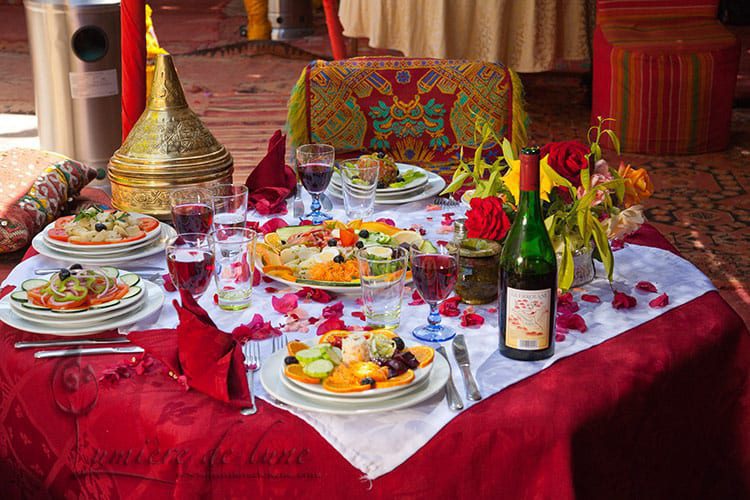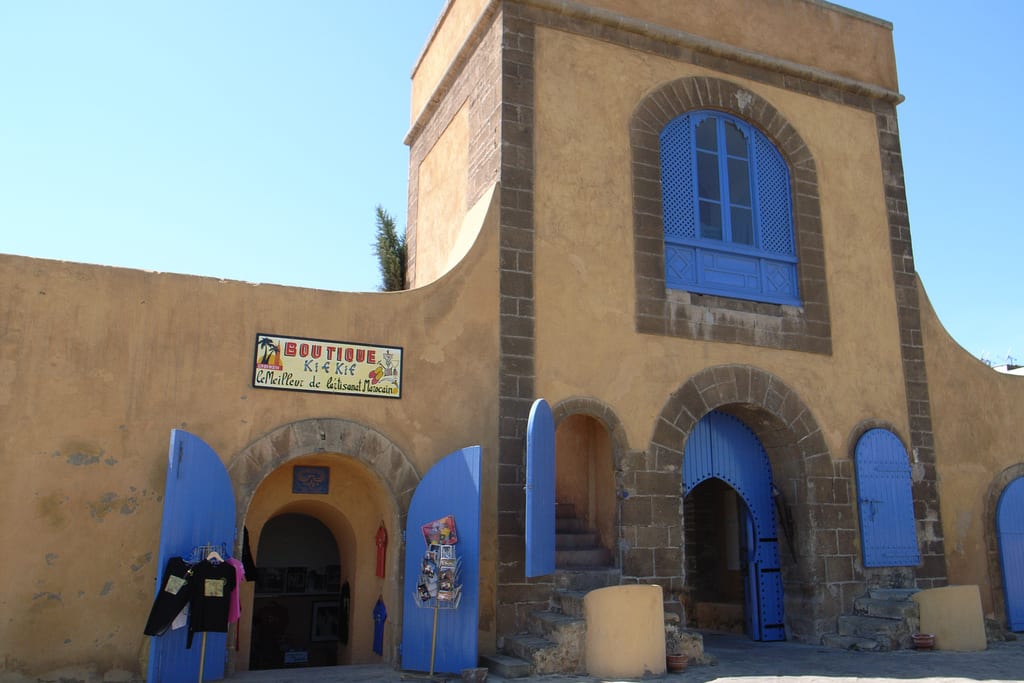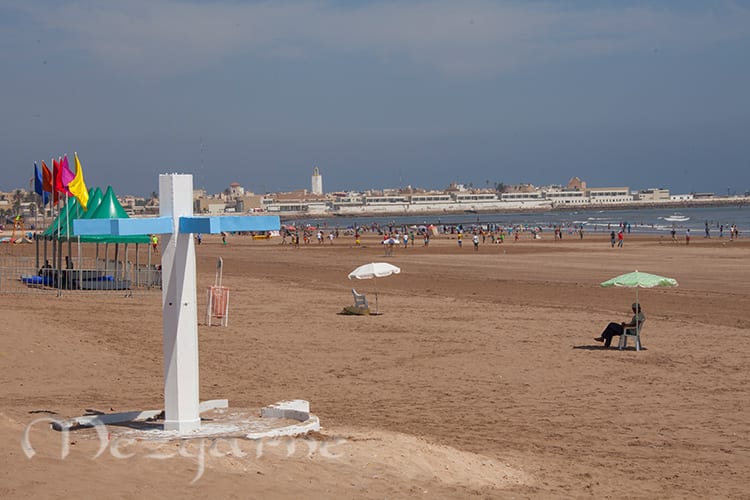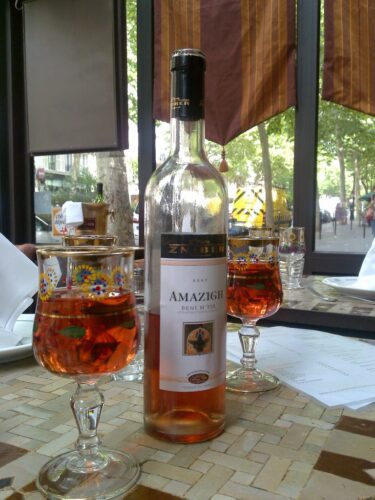Every year, new Europeans arriving in Morocco discover the reality of life during the month of Ramadan: Morocco, so tolerant of alcohol consumption, suddenly becomes much stricter, and many restaurants close until the evening, even though they were mainly frequented by Europeans.
If not because the clientele is no longer there, then why?
The law on selling alcohol to Muslims
A distinction must be made between two different things: the sale of alcohol, and eating in public. In both cases, the law is clear: it is forbidden to sell alcohol to a Muslim, it is forbidden for a Muslim to eat in public while fasting in Ramadan, it is forbidden to “participate” in this offence by selling him food or alcohol during Ramadan.
For those who pay attention to details, you will note that I did not write “it is forbidden to sell alcohol to a Muslim during Ramadan”. Indeed, legally, this prohibition applies all year round. Simply, outside the period of Eid El Kebir, everyone turns a blind eye, applying the good old Moroccan schizophrenia. (Morocco being a producer of quality wines).
In practice, then, if you are not Muslim, you can still buy alcohol during Ramadan, in the outlets that remain open – with ԁіѕсrеtіоn and reduced hours, better to go at ten in the morning than just before the F’tour or after the break of the fast, when Muslims go to the mosque. You will just have to prove that you are not a Muslim, which is done by showing your passport or Moroccan identity card.

This is where we come up against a first difficulty, as your religion is not written on your documents. We will therefore base ourselves on your name to know your religion. If the hazards of life have given you a “Muslim” name (Arabic in reality), while your family is not Muslim, then too bad, you will not be able to buy alcohol (remember that about 5% of the Arab inhabitants of the Middle East are not Muslims, but Copts, Maronites, etc…)
If he breaks this law, the retailer risks a fine, the loss of his alcohol licence, administrative closure or even prison.
It is for this reason, and to avoid the rather heavy administrative hassle, that a large number of shops stop selling alcohol during Ramadan. The other reasons being :
- not to offend their Muslim customers
- not to attract a “fauna” that is in nееԁ оf alcohol and will try to get it at any cost, notably by circling the shop and asking European customers to buy bottles from them.
The ban on eating or drinking in public
Although Morocco is less strict than other countries – for example, in Tunisia and Egypt, restaurant windows are covered with newspaper – it is still an offence for Muslims to break fast in public. This includes food, but also drinking a simple sip of water.
Again, this offence is punishable by prison. The law is contested by Moroccan reformists, and every year public picnics of de-fasters are organised and suppressed by the police.
Let’s be honest, while the average Moroccan may be concerned about corruption, democracy or unemployment, secularisation and the repeal of the law is of no concern to them (or they are against it).

In any case, this implies strong constraints for the restaurant open at midday: to check the identity and the religion of all its customers, without exception, in order to turn away those who “must fast”. Yes, that’s where it gets really complicated: you can be a Muslim and be exempted from fasting: diabetics, for example, or pregnant women or women on their period.
In tourist areas, tolerance remains high and restaurants are open, without passport control. But when you leave these tourist areas, it is more difficult.
And then there is a second problem: when the chef is a Muslim, it is difficult to cook well without tasting. Staying in the heat of a kitchen without drinking is difficult. In addition, it will be necessary to bring forward the evening service, to serve the F’tour.
So for the same reason: to avoid complications and risks, many restaurants decide to close at noon, or even completely during the month of Ramadan.
In practice, for those who do not do Ramadan
Unless you live in the deep bled, it is always possible to find at least one restaurant open at noon (at worst, a hotel restaurant or a MacDonald’s).
Terrace meals are impossible, though.
It is respectful not to eat a sandwich in the street, it is illegal to drink alcohol in public and it is recommended not to empty a large bottle of water loudly in front of a Moroccan exhausted by heat and thirst.
Many cafés leave their terraces open for their regular customers to sit and read the newspaper or chat with friends without drinking. If you discreetly put your water bottle on the ground and take a quick sip or two from time to time, and you don’t look too Moroccan, no one will make eyes at you…
Last year, in El Jadida, I enjoyed with great pleasure the beach cafés, whose tables were in the shade, with a view on a deserted beach… one of them even accepted to serve me a pizza, at the back of the room!

Anyway, living with a Moroccan who does Ramadan, I eat very little during the day: otherwise, with the F’tour and dinner in the middle of the night, I would gain many kilos every Ramadan!
The alcohol rush
It’s the same phenomenon every year, the anxious, the heavy drinkers, the dizzy ones rush to the liquor stores at the last minute. The trolleys full of bottles that you see at the exit of Metro or supermarkets during the last three-four days are quite impressive!
It’s really the same reaction as during the American prohibition, the more alcohol was banned, the more was sold. Personally, I’m enjoying this month for trying to do a detox. But if this is not your case, you should know that many shops are setting up their new organisation a few days before Ramadan: be prepared and don’t wait until the last minute! Ramadan starts tomorrow…
 A typo or syntax error? You can select the text and hit Ctrl+Enter to send us a message. Thank you! If this post interested you, maybe you can also leave a comment. We'd love to exchange with you !
A typo or syntax error? You can select the text and hit Ctrl+Enter to send us a message. Thank you! If this post interested you, maybe you can also leave a comment. We'd love to exchange with you !




